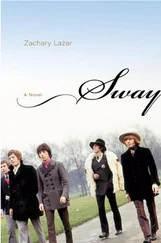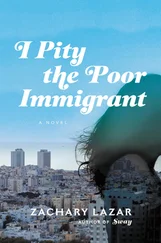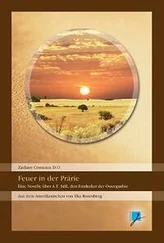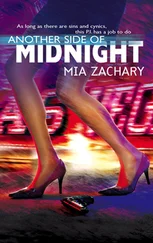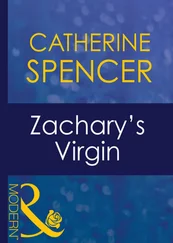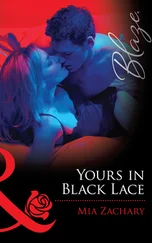“If you and I put on a couple of Nazi helmets and jump in a motorcycle with a sidecar. .” Steve has a harder time enunciating his words now. “You and me, man. We’ll take over Paris in a heartbeat. The French are cowards. We’ll say: Halt! Hände hoch! And we’ll say, Frenchies , we’ll destroy your cultural heritage!”
“Hände hoch!”
“Surrender! Surrender quick! Hände hoch, motherfuckers. And they will surrender. The Frenchies are scared that if I fart,” Steve lifts his ass off the seat, strains, and issues a loud fart, “like this, I’ll destroy their cultural heritage. Cheers! You’re not French, are you?”
“No, I’m not.” We lift our glasses in a toast.
“You have a big nose.”
“Thank you.”
“And an accent.”
“I’m a man with an accent.”
“And bruises on your face.”
“Oh, it’s some face I got here. .”
“Cheers. We are in motherfucking Phoenix, man,” yells Steve the flight attendant. “Phoenix, fuckin’ Arizona!” We kill the champagne. I announce that I’ll pay the whole bill. Steve resists. I manage to convince him that it’s a very special occasion for me. Then I ask the bartender to put the charge on my room since I’m staying here. He hands me the bill. I fill it out. Where it says room number I neatly write 2106 . I print the name Richard Brockman underneath and then I sign the check. I leave the bartender a fat tip, say good-bye to the creator of The Hour of Enlightenment, and leave. I cross the parking lot and go back to my hotel. In my room, I turn the TV on, mute the sound, watch the wild fires in California, open a Toblerone, suck on a few triangles, and take a sip of scotch. Then I undress, get in bed, and toss and turn for a while until I find the right position in which I feel the least sick from the alcohol and myself. I close my eyes and count sheep.
*
— what are you thinking about, zack?
— nothing
— tell me
— about time
— it’s summertime. it will be sunny tomorrow with sca. .
— about the category of time
— ah. and how much time do you need to finish one roll of film?
— that depends
— let’s wrap it up, zack, OK?
*
I stand under the cold shower for a long time.
When did I actually begin to perceive Stella through my own thoughts about her and not through direct observation? I’ve watched her through layers of confusion and anger instead of seeing her as she was. Why have I viewed her through the monocle of my bitter ego?
I step out of the shower and dry myself off. I cut the film from last night into seven strips of five negatives each and carefully put them into the plastic sleeves. In the daylight I once again inspect the density of the exposure; I put away the film and leave the hotel. I buy coffee, grab a bite to eat, and drive off.
Phoenix, Scottsdale, New River, Black Canyon City, Camp Word, Rim Rock, Moons Park. .
Then the road starts climbing up, up, up, the cacti yield to short bushes, the short bushes to short pine trees. On the northern side of the road, tall green firs appear. Then I have to turn off the air conditioner and turn on the heat because here, in the dense, chilly mountain, it is already winter.
Flagstaff, Arizona. I don’t even bother stopping in the little, snow-covered town, or, for that matter, anywhere else on this small mountain, dropped as if by mistake in the middle of the desert. A geographical paradox with white snow caps.
I drive westward on I-40, toward Winslow, Joseph City, Holbrook, Petrified Forest, Chambers. Somewhere there I hesitate for a moment, tempted to drive north and take a look at the Grand Canyon. But instead I step on the gas pedal — what is there to see? A hole in the ground.
And so, farewell Arizona. I cross the border into New Mexico. The fatigue from driving comes not from moving in space, but from not moving while it happens. Motionless, in a glass jar, you maintain your speed while the world around you flies in the opposite direction. The highway across New Mexico is gray and stretched like an army blanket. Dusty bushes, tall cacti, Joshua trees on both sides. From time to time along the road, I pass by little white crosses in the dirt with plastic bottles of water and withered flowers tied with rags — sanctuaries of loss.
In the distance — the Llano Estacado desert. Like in an old western, tall reddish formations rise high up in the sky out of nowhere. They are now sliced horizontally by thick power lines.
I drive by exits to Church Rock, Gallup, McCann, Wingate, Piraeus, the Top of the World (McGeehan County), and Wrangler Road. Somewhere around here is the Continental Divide, but at this moment, I don’t care about seeing a line where some of the water runs east toward the Atlantic Ocean and the rest — west toward the Pacific.
I notice an exit to a gas station off the freeway and take it. I drive further down the road, where I see a cluster of brownish adobe structures with satellite dishes sticking up off the roofs and pick-up trucks parked outside. In front of some of the houses, brown-skinned kids play soccer or chase scruffy dogs. The skies above hand heavy and dark gray. At the gas station, I pay a plump man in overalls. I inquire about the people living in those houses. Navajo, he explains. Oh? And how about the kids, where do they go to school? He silently points in the direction of a white trailer with a tall pole adorned with the waving American flag. I ask him if I could spend the night somewhere around here. Sure. Where? You take this road here to the right about ten miles; there’s a lake and a campsite. There’s also a pueblo near by. Oh, I cheer up a little. Good idea, I’ll step away from civilization for a while, I’ll see Indians. I buy a bag of chips, a bottle of Coke, and a half gallon of milk. I leave a tip of a dollar something, I don’t know why. Just before I close the door behind me, the guy says:
“Watch out for your hubcaps.”
“Excuse me?”
“The Navajo steal hubcaps and car batteries from tourists who spend the night around the lake. When you wake up in the morning you might find your car on wooden blocks.”
“Seriously?”
“Seriously.”
“And what are you?” I ask him. He says he is half Pueblo, half Irish. I thank the mestizo and walk out.
No Navajos, no Pueblos! The Indians I grew up with, and who made me fall in love with America, were noble warriors and brave hunters — not small-time thieves.
I check the oil, then the tires, and turn on the ignition.
I began discovering America in my grandparents’ basement. Ever since I was a kid I have read everything I could get my hands on. In that basement, though, I discovered the old Wild West. Once, fumbling through the heaps of old junk stored in the damp, darkish place, I stumbled upon a wooden chest filled with all sorts of ancient periodicals, pamphlets, yellowed fashion and pulp fiction magazines. Amidst pages full of recipes, sewing and knitting patterns, and pre-World War II fashion, I encountered the novels of Karl May, published in consecutive issues. I had already read Mayne Reid’s Osceola, The White Chief , and other such books, so I had a decent enough idea about who the redskins and the palefaces were. Since the American Old West stories were serialized in pulp magazines and many of the issues had disappeared, a lot of the chapters were missing and important story elements had been lost. So I had to imagine what might have happened, connect the dots and co-write the story in my head. I would try to picture the missing parts, what the characters might have done or said. I would make up whole chapters of the pulp novel, rework the main characters, and would even create allies and foes that helped my story move forward. Huddled up on the hard, cool ottoman under the little basement window dimmed by thick cobwebs, I got lost in the American Wild West. I roamed its missing pages.
Читать дальше




